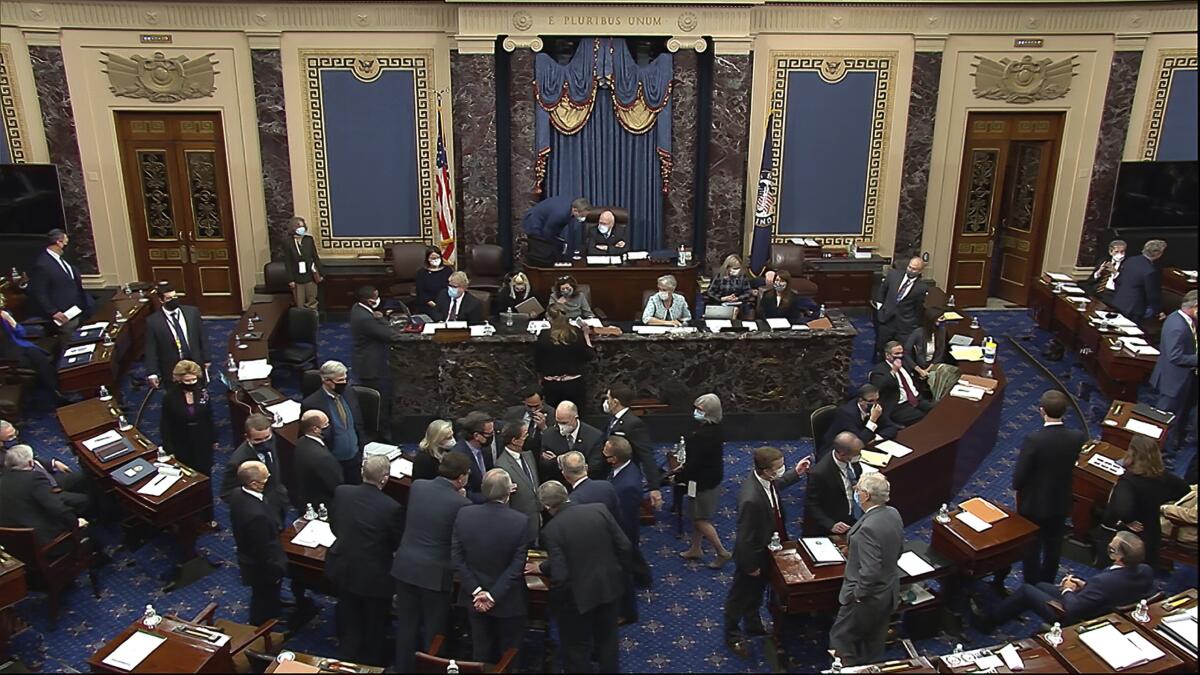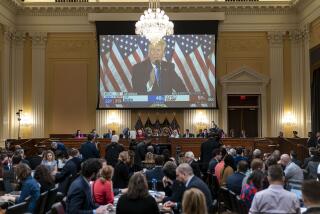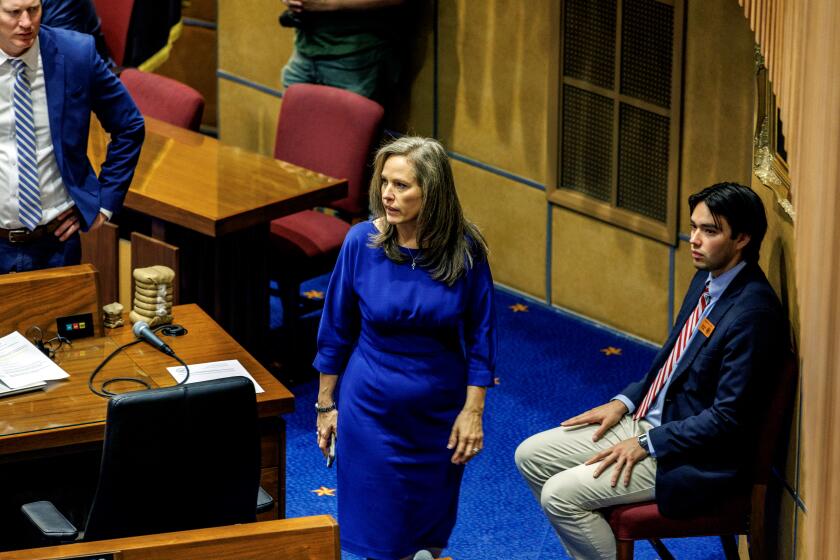Five takeaways from Trump’s impeachment trial so far

As House impeachment managers wrap up their case against former President Trump, several key facts have been established. Here are some takeaways:
The prosecutors’ case has drawn bipartisan praise, but it may not matter
Unlike Trump’s first impeachment trial a year ago, in which reactions to the case divided sharply along partisan lines, many Republican senators this time have praised the prosecutors’ case.
“I think they’ve done a good job connecting the dots,” Sen. John Thune, the No. 2 Republican in the Senate, said Wednesday.
That doesn’t mean, however, that they’ll vote to convict.
Impeachment comes wrapped in legal formats, but it has always been a political process. There’s no set legal standard for what evidence is needed to convict — no equivalent to the “beyond a reasonable doubt” rule used in criminal cases, for example. Instead, senators get to decide on whatever basis they choose.
Republican senators face intense pressure from voters and party activists in their states to stand with Trump. That was evident earlier this week when Louisiana Republican groups censured Sen. Bill Cassidy after he joined five other Republican senators in voting that the Senate has the authority under the Constitution to hold the trial, even though Trump no longer holds office.
Of the Republicans who voted to proceed with the trial, Sens. Lisa Murkowski of Alaska and Susan Collins of Maine have strong bases among independent voters, which give them a cushion against partisan pressure. Collins just won reelection.
Two others, Mitt Romney of Utah and Ben Sasse of Nebraska, have histories of criticizing Trump. Romney was the only Republican senator who voted to convict Trump a year ago in his first trial. The fifth, Patrick J. Toomey of Pennsylvania, has announced he doesn’t plan to run for reelection in 2022.
A few other Republicans have indicated they are still considering conviction, but if they do, their judgments of home-state politics will likely play at least as big a role as anything the impeachment managers say.
A constitutional argument provides a good refuge
On Tuesday, the Senate voted 56 to 44 that it had authority under the Constitution to try a former official, at least in a case such as this one in which the official had been impeached while still in office.
That’s the position the Senate took in 1876, the last time it faced the issue, when it tried the impeachment of William Belknap, who had resigned his job as secretary of War just hours before the House voted to impeach him.
On Wednesday, Rep. Jamie Raskin (D-Md.), the lead impeachment manager, argued that with the jurisdictional issue behind them, senators should now decide strictly on the merits of the case. But several Republican senators made clear they disagreed.
“We want justice. But that doesn’t mean that we can go against what we believe to be constitutionally limited authority,” said Sen. Mike Rounds (R-S.D.).
Conspiracy theories about Jan. 6 don’t stand up
On right-wing media, the falsity persists that the Jan. 6 riot was a hoax staged by antifa, the left-wing anarchist movement, to make Trump look bad.
The flood of documents coming from prosecutions of the rioters already strongly undermined that conspiracy theory. The extensive video displayed by the impeachment managers, showing hundreds of rioters shouting “Fight for Trump” and “Stop the Steal” and carrying Trump flags, have further disproved the notion.
Other supporters of Trump and right-wing militia groups have sought to downplay the violence of the attack, insisting that the Jan. 6 events were mostly peaceful.
The video evidence showed in graphic detail how false that is.Trump did nothing to stop the attack
The impeachment managers presented extensive evidence on two key elements of their case — that the rioters believed that they were doing Trump’s bidding and that Trump did nothing to call off the mob.
Trump’s failure to act quickly to stop the violence was a “breathtaking dereliction of duty,” Rep. David Cicilline (D-R.I.) told senators.
He and other impeachment managers stressed that point repeatedly, arguing that Trump’s failure to stop the violence was, by itself, a violation of his oath of office.
Trump’s conduct was worse than falsely shouting “fire” in a theater, Raskin said.
“It’s more like a case where the town fire chief who’s paid to put out fires sends a mob not to yell ‘fire’ in a crowded theater, but to actually set the theater on fire” and then do nothing to put out the flames, he said.
Linking Trump to the violence remains a problem
As with the previous impeachment case, the prosecutors don’t have direct evidence of Trump’s state of mind. There’s no documentary evidence or witness account saying that Trump intended that violence that took place.
That sort of gap in evidence is not a rare thing. In criminal trials, prosecutors often ask jurors to draw reasonable inferences from the facts, but there’s no question those cases are harder to win.
To fill the gap in this case, the impeachment managers stressed evidence that plans for violence on Jan. 6 were widely circulated on websites and social media platforms that the White House was known to monitor. Trump would logically have known about them and certainly should have known, they said.
Moreover, as Raskin said Thursday, Trump had a long history of inciting violence by his supporters.
Senators should “use our common sense,” Raskin said. They should look at Trump’s “unavoidable knowledge of the consequences of his incitement and the clear foreseeability of the violent harm he unleashed on our people and our republic.”
But Republican senators have repeatedly pointed to the lack of direct evidence of Trump’s intentions as a reason to vote against conviction.
The prosecutors’ “presentation was powerful and emotional, reliving a terrorist attack on our nation’s capital, but there was very little said about how specific conduct of the president satisfies the legal standard,” said Sen. Ted Cruz (R-Texas).
More to Read
Get the L.A. Times Politics newsletter
Deeply reported insights into legislation, politics and policy from Sacramento, Washington and beyond. In your inbox three times per week.
You may occasionally receive promotional content from the Los Angeles Times.







